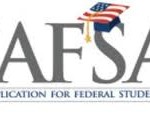The Other Things Florida Schools Should Do To Prepare Grads For College

jamie_haglestein / Flickr
New education standards alone won't ensure Florida graduate are ready for college, according to the Florida College Access Network.
New education standards adopted by Florida and 44 other states alone won’t be enough to ensure high school graduates are ready for college, according to a new policy brief from the Florida College Access Network.
State and education leaders will also need to provide help outside the classroom, such as bolstering school college and career counseling, better tracking and analysis of federal financial aid applications and developing a statewide program to encourage students to go to college.
Florida schools are now transitioning to Common Core State Standards, which outline what students should know by the end of each grade. The standards are intended to ensure that every high school graduate will be ready for college-level work or qualified for a job with a salary which could support a family.
But The Florida College Access Network analysis argues that increasing academic rigor alone won’t be enough. The group provides research and advocacy with the goal of increasing the percentage of Floridians with higher education degrees or credentials.
The Florida College Access Network underwrites StateImpact Florida’s coverage..
“Common Core is a step in the right direction,” the report says. “By progressively focusing on the skills and knowledge that matters most for college and career readiness from kindergarten through 12th their level of academic preparedness for success after high school.
“One thing we know, however, is that while a rigorous K-12 education is the foundation for preparing students for success in college and careers, it is not the only piece of the puzzle.”
The Florida College Access Network encourages state leaders to define what it means to be ready for college, including non-academic indicators, such as financial preparedness and the ability to vet college options.
The state should also analyze Free Application for Federal Student Aid data to learn more about which students are not submitting the application. About 60 percent of students in Florida school are eligible for the federal free and reduced-price lunch program, but just 25 percent of high school seniors submit the FAFSA.
The Florida College Access Network argues schools should expand the use of school counselors to advise students, and that K-12 schools and colleges need to collaborate more on Common Core efforts.Read the full policy brief here.

